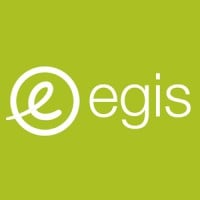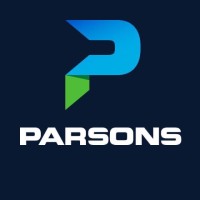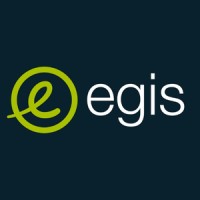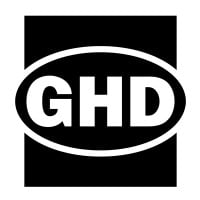
Egis Company Cyber Security Posture
egis-group.comEgis is an international player active in the consulting, construction engineering and mobility service sectors. We design and operate intelligent infrastructure and buildings capable of responding to the climate emergency and helping to achieve more balanced, sustainable and resilient territorial development. With operations in 100 countries, Egis places the expertise of its 20,500 employees at the disposal of its clients and develops cutting-edge innovation accessible to all projects. Improving people’s quality of life and supporting communities in their social and economic development, whilst drastically reducing carbon emissions and achieving vital 2050 net zero targets, that’s our purpose. Egis shareholders consist of Tikehau Capital (40%) via its T2 Energy Transition fund, Caisse des Dépôts (34%) and its partner managers and employees (26%) through Egis Partenaires and a Corporate Mutual Fund share.
Egis Company Details
egis
12637 employees
562148.0
237
Civil Engineering
egis-group.com
Scan still pending
EGI_7227727
In-progress
Between 900 and 1000
This score is AI-generated and less favored by cyber insurers, who prefer the TPRM score.
 Egis Global Score
Egis Global Score.png)

Egis Company Scoring based on AI Models
| Model Name | Date | Description | Current Score Difference | Score |
|---|---|---|---|---|
| AVERAGE-Industry | 03-12-2025 | This score represents the average cybersecurity rating of companies already scanned within the same industry. It provides a benchmark to compare an individual company's security posture against its industry peers. | N/A | Between 900 and 1000 |
Egis Company Cyber Security News & History
| Entity | Type | Severity | Impact | Seen | Url ID | Details | View |
|---|
Egis Company Subsidiaries

Egis is an international player active in the consulting, construction engineering and mobility service sectors. We design and operate intelligent infrastructure and buildings capable of responding to the climate emergency and helping to achieve more balanced, sustainable and resilient territorial development. With operations in 100 countries, Egis places the expertise of its 20,500 employees at the disposal of its clients and develops cutting-edge innovation accessible to all projects. Improving people’s quality of life and supporting communities in their social and economic development, whilst drastically reducing carbon emissions and achieving vital 2050 net zero targets, that’s our purpose. Egis shareholders consist of Tikehau Capital (40%) via its T2 Energy Transition fund, Caisse des Dépôts (34%) and its partner managers and employees (26%) through Egis Partenaires and a Corporate Mutual Fund share.
Access Data Using Our API

Get company history
.png)
Egis Cyber Security News
Deep Sentinel Secures $15M in Funding for AI Security Growth
Deep Sentinel offers an integrated approach to crime prevention, combining artificial intelligence with live human guards. Its proprietary ...
Deep Sentinel Secures $15 Million in Series B Funding to Accelerate AI-Powered Security Growth
Deep Sentinel, the leader in proactive AI-powered security, today announced it has raised an oversubscribed $15 million in Series B funding ...
A new partnership between Egis and Airbus Protect
This partnership will enable both companies to deliver combined cutting-edge offerings for large industrial customers with critical processes, ...
New Brivo Security Suite streamlines enterprise security and compliance management
A unified platform that simplifies security management by integrating access control, video intelligence, visitor management and intrusion detection into one ...
McIntosh Perry Consulting Engineers have entered into an agreement to join Egis S.A.
On June 30, 2023, Egis S.A. ("Egis") announced that it closed the acquisition of McIntosh Perry Consulting Engineers. This new partnership allows Egis to ...
Investments, AI, and the Future of Integration: PSA-TEC’s State of the Industry Panel
The security industry is transforming rapidly, driven by increased capital investment, advancements in artificial intelligence (AI), and evolving customer ...
Industry is ‘stable’ but needs new talent, experts say
Industry capital investment and workforce development were among the hot topics covered during the State of the Industry panel at PSA TEC 2025.
Transforming ANSPs – Navigating new demands, accelerating innovation
ANSPs can overcome these challenges by adopting a balanced approach that combines organisational agility, technological evolution, and ecosystem ...
RSAC 2020: Ransomware a ‘National Crisis,’ CISA Says, Ramps ICS Focus
The federal agency plans a slew of initiatives to address industrial control security this year.

Egis Similar Companies

Parsons Corporation
Founded in 1944, Parsons Corporation, a digitally enabled solutions provider, is focused on creating the future of the defense, intelligence, and critical infrastructure markets. From Earth to outer space, we deliver tomorrow’s solutions today. Equipped with the capabilities required to take on any

Fugro
We are the world’s leading Geo-data specialist, collecting and analysing comprehensive information about the Earth and the structures built upon it. Through integrated data acquisition, analysis and advice, we unlock insights from Geo-data to help our clients design, build and operate their assets i

Mott MacDonald
Mott MacDonald is an employee-owned engineering, development and management consultancy, with more than 20,000 people in over 50 countries. We plan, design, deliver and maintain the transport, energy, water, buildings and wider infrastructure that is integral to people’s daily lives. Our core streng

Egis in ANZ
Egis is an international player active in architecture, consulting, construction engineering and mobility services. We create and operate intelligent infrastructures and buildings that respond to the climate emergency and contribute to more balanced, sustainable and resilient territorial development

GHD
We are committed to addressing the world’s biggest challenges in the areas of water, energy and communities. GHD is a global network of multi-disciplinary professionals providing clients with integrated solutions through engineering, environmental, design and construction expertise. Our future-focu

SACYR COLOMBIA
Trabajamos para que la sociedad avance hacia un futuro sostenible a través del desarrollo y gestión de infraestructuras que generan un impacto social, económico y medioambiental positivo. Estamos comprometidos con el desarrollo de la infraestructura en #Colombia #ColombiaNosInspira #SomosSac

Frequently Asked Questions (FAQ) on Cybersecurity Incidents
Egis CyberSecurity History Information
Total Incidents: According to Rankiteo, Egis has faced 0 incidents in the past.
Incident Types: As of the current reporting period, Egis has not encountered any cybersecurity incidents.
Total Financial Loss: The total financial loss from these incidents is estimated to be {total_financial_loss}.
Cybersecurity Posture: The company's overall cybersecurity posture is described as Egis is an international player active in the consulting, construction engineering and mobility service sectors. We design and operate intelligent infrastructure and buildings capable of responding to the climate emergency and helping to achieve more balanced, sustainable and resilient territorial development. With operations in 100 countries, Egis places the expertise of its 20,500 employees at the disposal of its clients and develops cutting-edge innovation accessible to all projects. Improving people’s quality of life and supporting communities in their social and economic development, whilst drastically reducing carbon emissions and achieving vital 2050 net zero targets, that’s our purpose. Egis shareholders consist of Tikehau Capital (40%) via its T2 Energy Transition fund, Caisse des Dépôts (34%) and its partner managers and employees (26%) through Egis Partenaires and a Corporate Mutual Fund share..
Detection and Response: The company detects and responds to cybersecurity incidents through {description_of_detection_and_response_process}.
Incident Details
Incident 1: Ransomware Attack
Title: {Incident_Title}
Description: {Brief_description_of_the_incident}
Date Detected: {Detection_Date}
Date Publicly Disclosed: {Disclosure_Date}
Date Resolved: {Resolution_Date}
Type: {Type_of_Attack}
Attack Vector: {Attack_Vector}
Vulnerability Exploited: {Vulnerability}
Threat Actor: {Threat_Actor}
Motivation: {Motivation}
Incident 2: Data Breach
Title: {Incident_Title}
Description: {Brief_description_of_the_incident}
Date Detected: {Detection_Date}
Date Publicly Disclosed: {Disclosure_Date}
Date Resolved: {Resolution_Date}
Type: {Type_of_Attack}
Attack Vector: {Attack_Vector}
Vulnerability Exploited: {Vulnerability}
Threat Actor: {Threat_Actor}
Motivation: {Motivation}
Common Attack Types: As of now, the company has not encountered any reported incidents involving common cyberattacks.
Identification of Attack Vectors: The company identifies the attack vectors used in incidents through {description_of_identification_process}.
Impact of the Incidents
Incident 1: Ransomware Attack
Financial Loss: {Financial_Loss}
Data Compromised: {Data_Compromised}
Systems Affected: {Systems_Affected}
Downtime: {Downtime}
Operational Impact: {Operational_Impact}
Conversion Rate Impact: {Conversion_Rate_Impact}
Revenue Loss: {Revenue_Loss}
Customer Complaints: {Customer_Complaints}
Brand Reputation Impact: {Brand_Reputation_Impact}
Legal Liabilities: {Legal_Liabilities}
Identity Theft Risk: {Identity_Theft_Risk}
Payment Information Risk: {Payment_Information_Risk}
Incident 2: Data Breach
Financial Loss: {Financial_Loss}
Data Compromised: {Data_Compromised}
Systems Affected: {Systems_Affected}
Downtime: {Downtime}
Operational Impact: {Operational_Impact}
Conversion Rate Impact: {Conversion_Rate_Impact}
Revenue Loss: {Revenue_Loss}
Customer Complaints: {Customer_Complaints}
Brand Reputation Impact: {Brand_Reputation_Impact}
Legal Liabilities: {Legal_Liabilities}
Identity Theft Risk: {Identity_Theft_Risk}
Payment Information Risk: {Payment_Information_Risk}
Average Financial Loss: The average financial loss per incident is {average_financial_loss}.
Commonly Compromised Data Types: The types of data most commonly compromised in incidents are {list_of_commonly_compromised_data_types}.
Incident 1: Ransomware Attack
Entity Name: {Entity_Name}
Entity Type: {Entity_Type}
Industry: {Industry}
Location: {Location}
Size: {Size}
Customers Affected: {Customers_Affected}
Incident 2: Data Breach
Entity Name: {Entity_Name}
Entity Type: {Entity_Type}
Industry: {Industry}
Location: {Location}
Size: {Size}
Customers Affected: {Customers_Affected}
Response to the Incidents
Incident 1: Ransomware Attack
Incident Response Plan Activated: {Yes/No}
Third Party Assistance: {Yes/No}
Law Enforcement Notified: {Yes/No}
Containment Measures: {Containment_Measures}
Remediation Measures: {Remediation_Measures}
Recovery Measures: {Recovery_Measures}
Communication Strategy: {Communication_Strategy}
Adaptive Behavioral WAF: {Adaptive_Behavioral_WAF}
On-Demand Scrubbing Services: {On_Demand_Scrubbing_Services}
Network Segmentation: {Network_Segmentation}
Enhanced Monitoring: {Enhanced_Monitoring}
Incident 2: Data Breach
Incident Response Plan Activated: {Yes/No}
Third Party Assistance: {Yes/No}
Law Enforcement Notified: {Yes/No}
Containment Measures: {Containment_Measures}
Remediation Measures: {Remediation_Measures}
Recovery Measures: {Recovery_Measures}
Communication Strategy: {Communication_Strategy}
Adaptive Behavioral WAF: {Adaptive_Behavioral_WAF}
On-Demand Scrubbing Services: {On_Demand_Scrubbing_Services}
Network Segmentation: {Network_Segmentation}
Enhanced Monitoring: {Enhanced_Monitoring}
Incident Response Plan: The company's incident response plan is described as {description_of_incident_response_plan}.
Third-Party Assistance: The company involves third-party assistance in incident response through {description_of_third_party_involvement}.
Data Breach Information
Incident 2: Data Breach
Type of Data Compromised: {Type_of_Data}
Number of Records Exposed: {Number_of_Records}
Sensitivity of Data: {Sensitivity_of_Data}
Data Exfiltration: {Yes/No}
Data Encryption: {Yes/No}
File Types Exposed: {File_Types}
Personally Identifiable Information: {Yes/No}
Prevention of Data Exfiltration: The company takes the following measures to prevent data exfiltration: {description_of_prevention_measures}.
Handling of PII Incidents: The company handles incidents involving personally identifiable information (PII) through {description_of_handling_process}.
Ransomware Information
Incident 1: Ransomware Attack
Ransom Demanded: {Ransom_Amount}
Ransom Paid: {Ransom_Paid}
Ransomware Strain: {Ransomware_Strain}
Data Encryption: {Yes/No}
Data Exfiltration: {Yes/No}
Ransom Payment Policy: The company's policy on paying ransoms in ransomware incidents is described as {description_of_ransom_payment_policy}.
Data Recovery from Ransomware: The company recovers data encrypted by ransomware through {description_of_data_recovery_process}.
Regulatory Compliance
Incident 1: Ransomware Attack
Regulations Violated: {Regulations_Violated}
Fines Imposed: {Fines_Imposed}
Legal Actions: {Legal_Actions}
Regulatory Notifications: {Regulatory_Notifications}
Incident 2: Data Breach
Regulations Violated: {Regulations_Violated}
Fines Imposed: {Fines_Imposed}
Legal Actions: {Legal_Actions}
Regulatory Notifications: {Regulatory_Notifications}
Regulatory Frameworks: The company complies with the following regulatory frameworks regarding cybersecurity: {list_of_regulatory_frameworks}.
Ensuring Regulatory Compliance: The company ensures compliance with regulatory requirements through {description_of_compliance_measures}.
Lessons Learned and Recommendations
Incident 1: Ransomware Attack
Lessons Learned: {Lessons_Learned}
Incident 2: Data Breach
Lessons Learned: {Lessons_Learned}
Incident 1: Ransomware Attack
Recommendations: {Recommendations}
Incident 2: Data Breach
Recommendations: {Recommendations}
Key Lessons Learned: The key lessons learned from past incidents are {list_of_key_lessons_learned}.
Implemented Recommendations: The company has implemented the following recommendations to improve cybersecurity: {list_of_implemented_recommendations}.
References
Additional Resources: Stakeholders can find additional resources on cybersecurity best practices at {list_of_additional_resources}.
Investigation Status
Incident 1: Ransomware Attack
Investigation Status: {Investigation_Status}
Incident 2: Data Breach
Investigation Status: {Investigation_Status}
Communication of Investigation Status: The company communicates the status of incident investigations to stakeholders through {description_of_communication_process}.
Stakeholder and Customer Advisories
Incident 1: Ransomware Attack
Stakeholder Advisories: {Stakeholder_Advisories}
Customer Advisories: {Customer_Advisories}
Incident 2: Data Breach
Stakeholder Advisories: {Stakeholder_Advisories}
Customer Advisories: {Customer_Advisories}
Advisories Provided: The company provides the following advisories to stakeholders and customers following an incident: {description_of_advisories_provided}.
Initial Access Broker
Incident 1: Ransomware Attack
Entry Point: {Entry_Point}
Reconnaissance Period: {Reconnaissance_Period}
Backdoors Established: {Backdoors_Established}
High Value Targets: {High_Value_Targets}
Data Sold on Dark Web: {Yes/No}
Incident 2: Data Breach
Entry Point: {Entry_Point}
Reconnaissance Period: {Reconnaissance_Period}
Backdoors Established: {Backdoors_Established}
High Value Targets: {High_Value_Targets}
Data Sold on Dark Web: {Yes/No}
Monitoring and Mitigation of Initial Access Brokers: The company monitors and mitigates the activities of initial access brokers through {description_of_monitoring_and_mitigation_measures}.
Post-Incident Analysis
Incident 1: Ransomware Attack
Root Causes: {Root_Causes}
Corrective Actions: {Corrective_Actions}
Incident 2: Data Breach
Root Causes: {Root_Causes}
Corrective Actions: {Corrective_Actions}
Post-Incident Analysis Process: The company's process for conducting post-incident analysis is described as {description_of_post_incident_analysis_process}.
Corrective Actions Taken: The company has taken the following corrective actions based on post-incident analysis: {list_of_corrective_actions_taken}.
Additional Questions
General Information
Ransom Payment History: The company has {paid/not_paid} ransoms in the past.
Last Ransom Demanded: The amount of the last ransom demanded was {last_ransom_amount}.
Last Attacking Group: The attacking group in the last incident was {last_attacking_group}.
Incident Details
Most Recent Incident Detected: The most recent incident detected was on {most_recent_incident_detected_date}.
Most Recent Incident Publicly Disclosed: The most recent incident publicly disclosed was on {most_recent_incident_publicly_disclosed_date}.
Most Recent Incident Resolved: The most recent incident resolved was on {most_recent_incident_resolved_date}.
Impact of the Incidents
Highest Financial Loss: The highest financial loss from an incident was {highest_financial_loss}.
Most Significant Data Compromised: The most significant data compromised in an incident was {most_significant_data_compromised}.
Most Significant System Affected: The most significant system affected in an incident was {most_significant_system_affected}.
Response to the Incidents
Third-Party Assistance in Most Recent Incident: The third-party assistance involved in the most recent incident was {third_party_assistance_in_most_recent_incident}.
Containment Measures in Most Recent Incident: The containment measures taken in the most recent incident were {containment_measures_in_most_recent_incident}.
Data Breach Information
Most Sensitive Data Compromised: The most sensitive data compromised in a breach was {most_sensitive_data_compromised}.
Number of Records Exposed: The number of records exposed in the most significant breach was {number_of_records_exposed}.
Ransomware Information
Highest Ransom Demanded: The highest ransom demanded in a ransomware incident was {highest_ransom_demanded}.
Highest Ransom Paid: The highest ransom paid in a ransomware incident was {highest_ransom_paid}.
Regulatory Compliance
Highest Fine Imposed: The highest fine imposed for a regulatory violation was {highest_fine_imposed}.
Most Significant Legal Action: The most significant legal action taken for a regulatory violation was {most_significant_legal_action}.
Lessons Learned and Recommendations
Most Significant Lesson Learned: The most significant lesson learned from past incidents was {most_significant_lesson_learned}.
Most Significant Recommendation Implemented: The most significant recommendation implemented to improve cybersecurity was {most_significant_recommendation_implemented}.
References
Most Recent Source: The most recent source of information about an incident is {most_recent_source}.
Most Recent URL for Additional Resources: The most recent URL for additional resources on cybersecurity best practices is {most_recent_url}.
Investigation Status
Current Status of Most Recent Investigation: The current status of the most recent investigation is {current_status_of_most_recent_investigation}.
Stakeholder and Customer Advisories
Most Recent Stakeholder Advisory: The most recent stakeholder advisory issued was {most_recent_stakeholder_advisory}.
Most Recent Customer Advisory: The most recent customer advisory issued was {most_recent_customer_advisory}.
Initial Access Broker
Most Recent Entry Point: The most recent entry point used by an initial access broker was {most_recent_entry_point}.
Most Recent Reconnaissance Period: The most recent reconnaissance period for an incident was {most_recent_reconnaissance_period}.
Post-Incident Analysis
Most Significant Root Cause: The most significant root cause identified in post-incident analysis was {most_significant_root_cause}.
Most Significant Corrective Action: The most significant corrective action taken based on post-incident analysis was {most_significant_corrective_action}.
What Do We Measure?
















Every week, Rankiteo analyzes billions of signals to give organizations a sharper, faster view of emerging risks. With deeper, more actionable intelligence at their fingertips, security teams can outpace threat actors, respond instantly to Zero-Day attacks, and dramatically shrink their risk exposure window.
These are some of the factors we use to calculate the overall score:
Identify exposed access points, detect misconfigured SSL certificates, and uncover vulnerabilities across the network infrastructure.
Gain visibility into the software components used within an organization to detect vulnerabilities, manage risk, and ensure supply chain security.
Monitor and manage all IT assets and their configurations to ensure accurate, real-time visibility across the company's technology environment.
Leverage real-time insights on active threats, malware campaigns, and emerging vulnerabilities to proactively defend against evolving cyberattacks.




